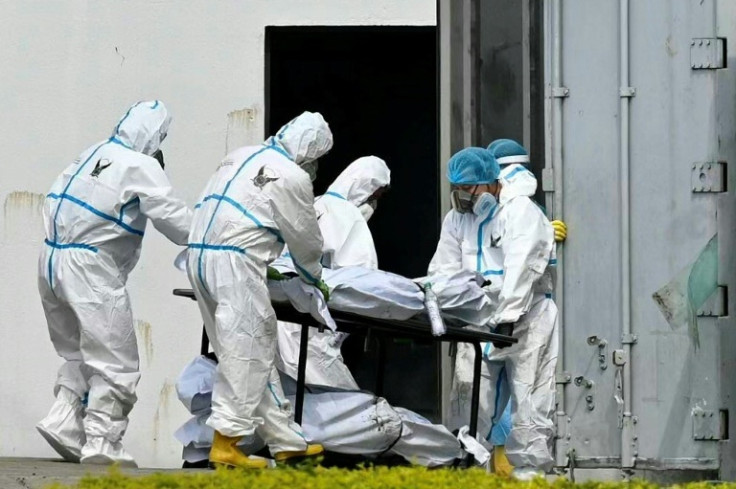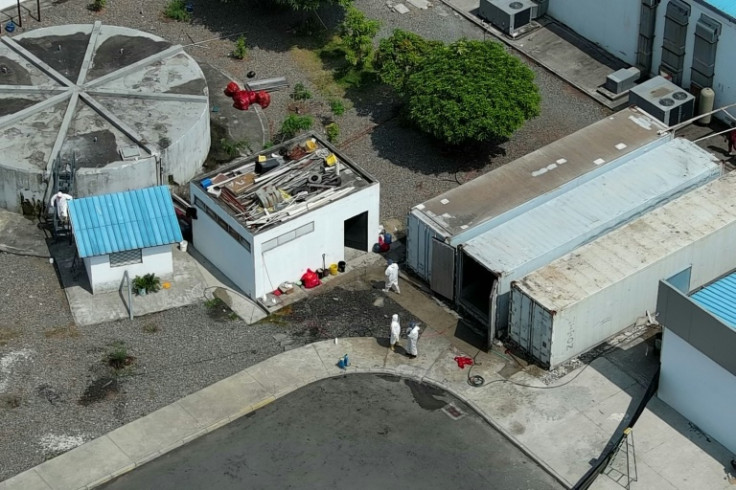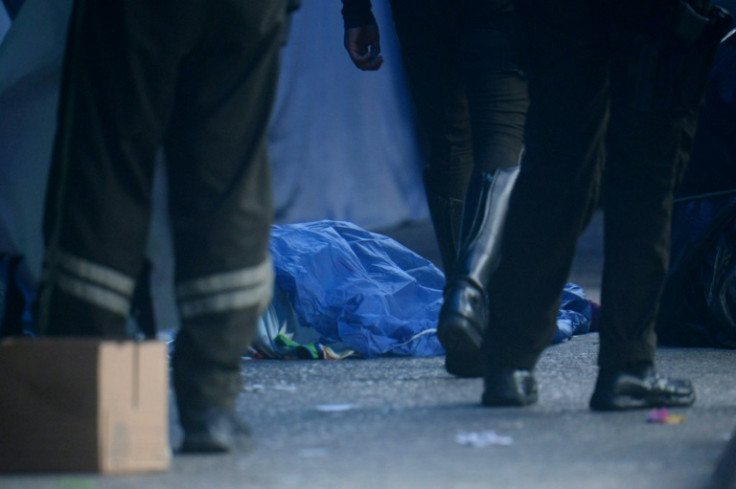Influx Of Murder Victims Overwhelms Forensic Morgue In Ecuador

Bodies by the dozen are piled up at an overfull forensic morgue in Ecuador's drug violence-plagued city of Guayaquil; the stench of death hanging over an entire neighborhood.
On site, workers in biohazard suits and masks move one body bag after another from shipping containers to coffins, as relatives wait outside in the stifling heat, gagging at the smell.
"I smoke to mask the odor," a man who requested anonymity for his own safety told AFP, dragging deeply on a cigarette as he waited to receive a loved one's remains.
The port city of Guayaquil has been at the center of an increasingly deadly battle between Ecuadoran drug gangs, and the bodies are piling up, many of them unidentified.
For days now, residents say, the odor of decomposing bodies has hung over an entire neighborhood surrounding the morgue, which receives the bodies of people violently killed in Guayaquil and neighboring Duran for investigation purposes.

The national forensics service said in a statement Tuesday that "due to the increase in criminal violence in the country, there are more bodies marked 'NN'," meaning unidentified and unclaimed, at the morgue.
It did not provide a figure, but press reports suggested there were over 200.
The service also said two refrigerated containers at the facility had broken down, amid media reports of leaking body fluids and even body parts spotted on the premises.
The forensic service said an investigation was underway.
Once considered a bastion of peace in Latin America, Ecuador has been plunged into crisis by the rapid spread of transnational cartels that use its ports -- mainly Guayaquil -- to ship drugs to the United States and Europe.

The homicide rate in Ecuador, a country of about 17 million people, soared from six per 100,000 inhabitants in 2018 to 47 per 100,000 last year.
In the first four months of 2024 alone, about 1,900 homicides were recorded. For 2023, the number was 8,004.
In January, Ecuadoran president Daniel Noboa declared a state of "internal armed conflict" allowing for military deployment in the streets and in prisons which are frequently the scene of brutal gang battles.
Noboa's declaration came amid a particularly brutal wave of violence in several parts of Ecuador, sparked by the prison escape of one of the country's most powerful criminal bosses.
This is not the first time the number of corpses has overwhelmed capacity at the Guayaquil forensic morgue, but it is the worst since the Covid-19 pandemic when the remains of more than 200 people lay unidentified or unclaimed for months.
The spreading stench of death only worsens the fear that has gripped residents of Guayaquil where dead bodies regularly turn up hanging from bridges as gangsters settle scores.
© Copyright AFP 2025. All rights reserved.





















